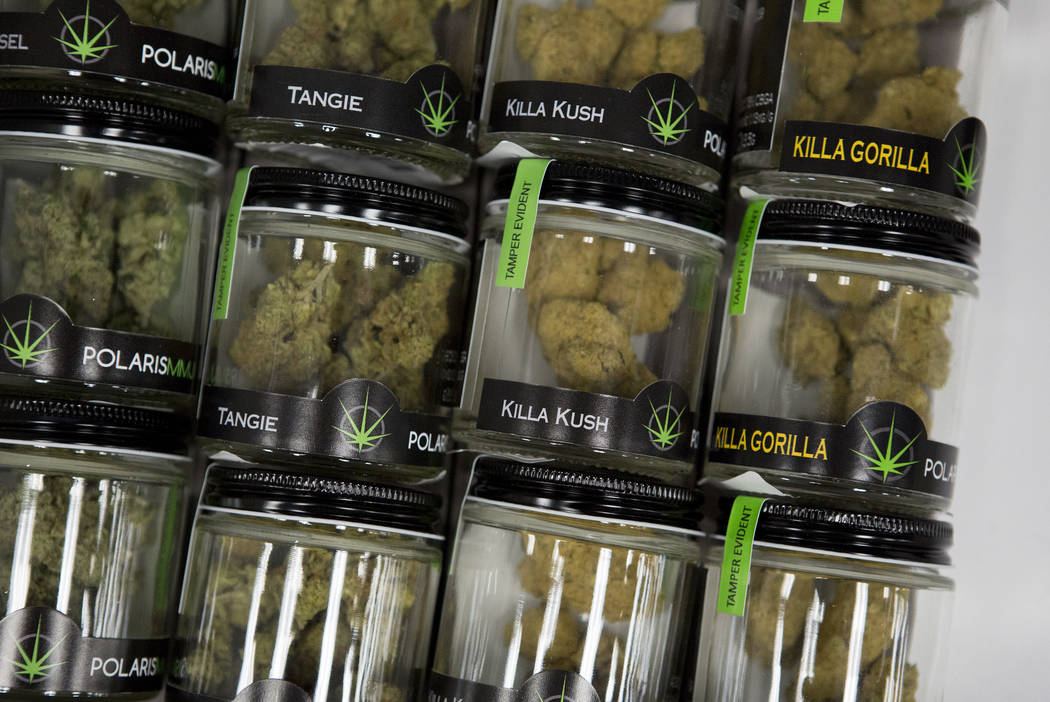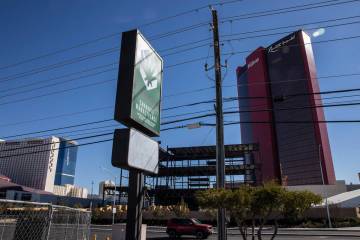New Nevada marijuana companies could be squeezed out of early sales
Companies looking to cash in on Nevada’s recreational marijuana market are in a race to get up and running or risk missing out on months of legal sales.
To qualify for a temporary recreational marijuana license, companies must have their medical marijuana license in hand and have paid taxes to the state by May 31, the Department of Taxation has proposed. Those that qualify will be allowed to grow, produce and sell (depending on the license type) recreational marijuana starting July 1.
But during a public workshop on Wednesday, several marijuana companies under construction and awaiting license approval say that deadline is unfair.
Many of the delays that are preventing companies from getting licensed by the deadline cannot be prevented, said Bronwen Nikora, who works for a cultivation and production company under construction in North Las Vegas.
Nikora said her company, which she did not name, has faced licensing delays for six months because North Las Vegas and Clark County had to sort out which municipality would service the company’s sewage.
“Delays like this — out of our control — are now potentially penalizing us,” Nikora said.
Others argued that the deadline could force companies to rush to open and possibly skimp on quality standards.
But tax department director Deonne Contine said the rule is about balancing public safety, tax revenue, and “making sure the process is prudent and thoughtful of consequences of full legalization.”
Limiting temporary licenses to the companies in good standing with the state gives the department time to vet the permanent regulations, which must be implemented by Jan. 1 2018, Contine said.
“The intent is really to have a little bit quicker start. And then other people might have to wait two or three months,” Contine said.
TAXATION AND SEPARATION
The proposed regulations also call for companies to designate and separate recreational and medical products starting at the cultivation level. That’s because the voter-approved ballot initiative calls for a 15 percent excise tax of recreational cannabis at the cultivation level, compared to just 2 percent for medical products.
A handful of bills introduced in the Nevada Legislature aim to make the medical’s wholesale tax the same 15 percent excise for recreational marijuana. Doing that would essentially allow companies to treat the products the same up until the point of sale, where recreational will see a significantly higher sales tax.
If one of those bills were to become law, the separation clause of the temporary regulations would not be needed, Contine said.
The tax department expects to present the final draft of the temporary regulations to the Nevada Tax Commission on May 8, when the regulations could be adopted.
Contact Colton Lochhead at clochhead@reviewjournal.com or 702-383-4638. Follow @ColtonLochhead on Twitter.
Pot news
Want to know more? Read all of our coverage here.
Marijuana sales timetable:
May 8: Tax department plans to present regulations for Nevada Tax Commission for a vote
July 1: Sales of recreational marijuana expected to begin
Jan. 1: Deadline for permanent regulations for recreational marijuana to be implemented























